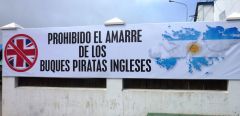by Emilee Gaebler
Impunity Watch Reporter, South America
BOGOTÁ, Colombia – Viviane Morales, the chief prosecutor of Colombia has been forced to step down from her post. A lawsuit was filed claiming that Morales was elected improperly according to provisions of the Colombian constitution. She took office in 2010 and was the first woman to be elected to the position as Colombia’s top prosecutor.
- Viviane Morales was forced to resign following a verdict that she was improperly elected. (Photo Courtesy of Colombia Reports)
The lawsuit claims that Morales was improperly elected because at the time she failed to get the 2/3 majority vote of the Supreme Court magistrates as required. She was elected by a 14-4 vote and the discrepancy arises because the number of magistrates mandated by the Colombian constitution is 23. The suit claims that since there were 5 vacancies during her election, and only 18 sitting magistrates, she did not properly take office.
As reported by NTN24 News, the decision to elect Morales ended a 1.5 year impasse between the Supreme Court and the government where the magistrates refused to accept any of the nominees submitted to them. Colombian president, Juan Manuel Santos, expressed his regret that Morales resigned. He noted that during her time as chief prosecutor she performed with, “great dignity, great efficiency, great transparency and great character.”
Morales resigned when the ruling was handed down by Colombia’s Council of State that her election was invalid. In her resignation speech, she emphasized her aggressive stance in prosecuting even those seen as “untouchable” like government agencies and officials.
During her time as the chief prosecutor Morales investigated, prosecuted and dismantled the DAS department for its use by past-president, Alvaro Uribe’s administration to illegally spy on political opponents. She also prosecuted a number of past ministers who were close to Uribe including Bernado Moreno, Uribe’s chief of staff, and Andres Felipe Arias, Uribe’s agriculture minister.
In the past year Morales has faced strong criticism and a rash of bad publicity for her marriage to Carlos Alonso Lucio, an ex-guerilla member of the group M-19. The group is now demobilized but was linked to drug paramilitaries and drug trafficking. Morales noted that such attacks against her and her husband were “vile, low and slanderous.”
Vice Prosecutor General, Wilson Martinez, will step in until Morales’ successor is elected. President Santos will now submit a shortlist of three candidates to the Supreme Court for their consideration. It would be possible to place Morales on that list, however she noted in her resignation speech that she would not be available as a candidate.
For more information, please see;
Xinhua News – Colombia’s Chief Prosecutor Resigns After Adverse Verdict – 3 March 2012
BBC News – Colombia Chief Prosecutor Viviane Morales Resigns – 2 March 2012
Colombia Reports – Colombia’s Unseated Prosecutor General not Available for Re-election – 2 March 2012
Colombia Reports – President Santos Regrets Prosecutor General Resignation – 2 March 2012
Colombia Reports – Colombia’s Prosecutor General Removed From Office – 29 February 2012
NTN24 News – Colombia Prosecutor that Jailed Uribe Officials Ousted – 29 February 2012




